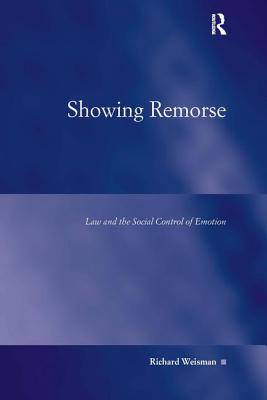
- Retrait gratuit dans votre magasin Club
- 7.000.000 titres dans notre catalogue
- Payer en toute sécurité
- Toujours un magasin près de chez vous
- Retrait gratuit dans votre magasin Club
- 7.000.0000 titres dans notre catalogue
- Payer en toute sécurité
- Toujours un magasin près de chez vous
Description
Whether or not wrongdoers show remorse and how they show remorse are matters that attract great interest both in law and in popular culture. In capital trials in the United States, it can be a question of life or death whether a jury believes that a wrongdoer showed remorse. And in wrongdoings that capture the popular imagination, public attention focuses not only on the act but on whether the perpetrator feels remorse for what they did. But who decides when remorse should be shown or not shown and whether it is genuine or not genuine? In contrast to previous academic studies on the subject, the primary focus of this work is not on whether the wrongdoer meets these expectations over how and when remorse should be shown but on how the community reacts when these expectations are met or not met. Using examples drawn from Canada, the United States, and South Africa, the author demonstrates that the showing of remorse is a site of negotiation and contention between groups who differ about when it is to be expressed and how it is to be expressed. The book illustrates these points by looking at cases about which there was conflict over whether the wrongdoer should show remorse or whether the feelings that were shown were sincere. Building on the earlier analysis, the author shows that the process of deciding when and how remorse should be expressed contributes to the moral ordering of society as a whole. This book will be of interest to those in the fields of sociology, law, law and society, and criminology.
Spécifications
Parties prenantes
- Auteur(s) :
- Editeur:
Contenu
- Nombre de pages :
- 158
- Langue:
- Anglais
- Collection :
Caractéristiques
- EAN:
- 9780754673989
- Date de parution :
- 10-01-14
- Format:
- Livre relié
- Format numérique:
- Genaaid
- Dimensions :
- 156 mm x 234 mm
- Poids :
- 403 g

Les avis
Nous publions uniquement les avis qui respectent les conditions requises. Consultez nos conditions pour les avis.






